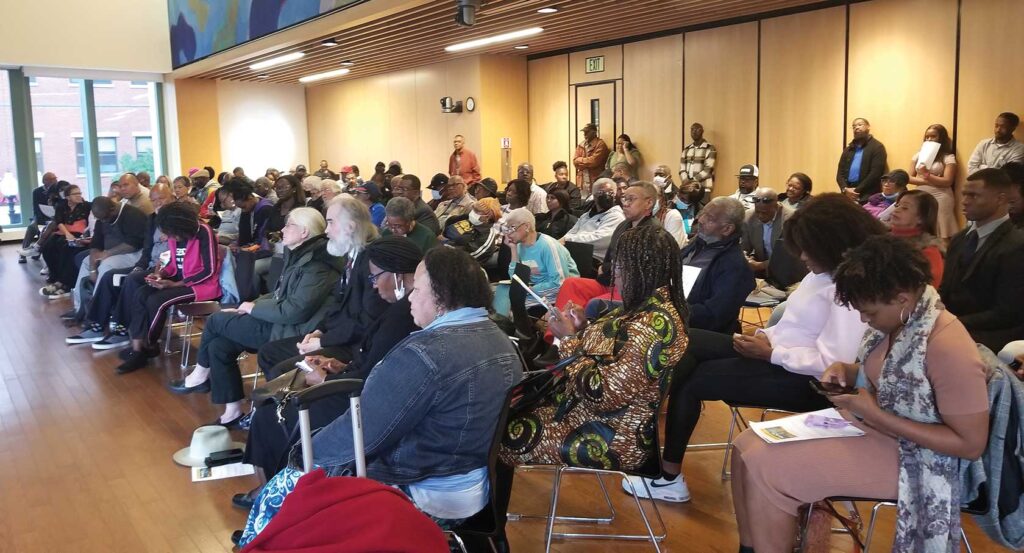
 The NAACP will hold a weekend of events open to the public during its national convention in Boston beginning in late July.
The NAACP will hold a weekend of events open to the public during its national convention in Boston beginning in late July.
The public events at the Boston Convention and Exhibition Center in the Seaport include an opening celebration the evening of July 28 and a daylong marketplace the next day.
Tanisha Sullivan, president of the Boston NAACP, said the nation’s oldest civil rights organization will be able make the events accessible to all because of a $2 million earmark that state Rep. Russell Holmes of Mattapan placed in the state budget.
During a community meeting at the Bolling Building in Nubian Square on June 5, Sullivan laid out plans to engage local residents, particularly the Black community, in the long-delayed convention. About 5,000 delegates, observers, students and others are expected to attend.
The 114th national convention, she said, is the “longest-planned convention in NAACP history.” The original plan to return the gathering to Boston for the first time in 40 years was scuttled because of the COVID-19 pandemic. Instead of an in-person meeting, the convention in 2021 was conducted with virtual programming.
This year, as is customary, the first event, starting July 26, will be a competition of 3,000 high school students from around the country in the Afro-Academic, Cultural, Technological and Scientific Olympics (ACT-SO). Fourteen local winners will compete in the ACT-SO competition, which Sullivan said provided her own first exposure to the NAACP.
NAACP decided to create the high school competition in 1977 at the suggestion of Vernon Jarrett, then a Chicago newspaper columnist who was one of the founders of the National Association of Black Journalists. The acronym was composed to convey the message to Black students that, if they want to be successful, then “act so.”
About 100 people attended the recent community meeting, nearly filling the second-floor meeting room of the Boston School Committee. A recurrent question was how local Black businesses would benefit from the presence of visitors.
Mukiya Baker-Gomez, a former director of the Massachusetts State Office of Minority and Women Business Assistance (SOMWBA), raised the issue in the first question from the floor.
“Where are we at in terms of promoting Black Boston, in terms of this convention? And I just want to say I’m absolutely disappointed, because when I went on the national website, I didn’t see anything flagging Black Boston,” she said. “I know we have Roxbury Heritage State Park right up the street. They could put together a wonderful tour. We have a group of Black-owned barbershops and beauty shops in our community that are willing to serve the conventioneers. We have Black restaurants that are in our community.”
(Baker-Gomez died suddenly on June 10.)
Sullivan said NAACP distributes to conventioneers a list of local Black-owned businesses in every city in which it meets. She added that the national office tends to use the same vendors each year, but the Boston branch directed 85% of its $1 million in spending for the virtual conference in 2021 to minority- or women-owned businesses.
Linda Dorcena Forry, a former state senator who is directing local operations for the convention, said Black businesses could gain access to out-of-town buyers at the Saturday marketplace.
“We have a chance to showcase Boston, and we know around the country people say stuff about Boston,” Forry said. “We want to make sure our Black businesses have access.”
Ed Harris of Cambridge, a member of the NAACP’s national security team, was more explicit about how Black people around the country often view Boston.
“A lot has been said about Boston and how racist it is and that Black folks don’t exist and that Black folks aren’t here — but we’re here, putting it together, getting it together, and we’re going to let them know that we’re thriving together,” Harris said. “That’s the purpose of this convention this year.”






